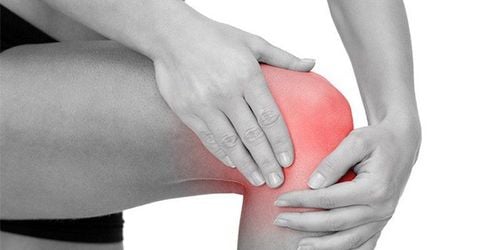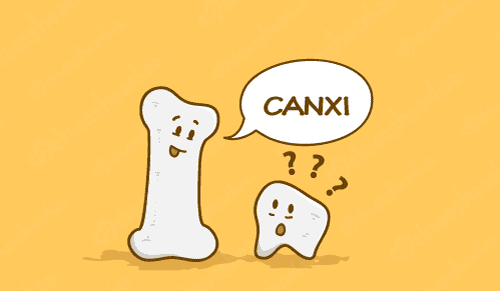This is an automatically translated article.
The article was professionally consulted by Specialist Doctor I Vo Khac Khoi Nguyen - Department of General Surgery, Vinmec Central Park International General Hospital.A significant proportion of people worldwide do not reach the recommended daily calcium intake, according to epidemiological studies. Therefore, calcium supplements are often recommended for people whose dietary calcium intake is inadequate. However, improper calcium supplementation can increase the risk of cardiovascular disease, kidney disease, and even death. So how much calcium should each person supplement? Please refer to the information in the article below.
1. Subjects needing calcium supplements
Even with a healthy and balanced diet, the following people at risk of calcium deficiency should be considered for calcium supplements:Children in puberty Women in perimenopause and menopause Elderly People who live in areas with low calcium diets (East Asia, Southeast Asia, Africa, Central and South America) Vegetarians People with osteoporosis People with broken bones People with diseases gastrointestinal disorders that reduce calcium absorption (enteritis or celiac disease, lactose intolerance).

2. How to choose calcium supplements?
There are many different types of calcium supplements on the market today. Each type is different in terms of added ingredients and elemental calcium, which leads to different absorption rates depending on the product type. Therefore, when using, we need to pay attention to the calcium compound composition:Calcium carbonate (40% elemental calcium) Calcium citrate (21% elemental calcium) Calcium gluconate (9% elemental calcium) Calcium lactate ( 13% elemental calcium). The two main forms of calcium commonly used in preparations are calcium carbonate and calcium citrate. Each type has advantages and disadvantages.
Calcium carbonates tend to be chosen because they contain a lot of elemental calcium (about 40% by weight). It is best to take this product with or after a meal because calcium carbonate is an insoluble salt that requires stomach acid for dissolution and absorption. Most people tolerate calcium carbonate well, but some people have mild constipation or bloating, indigestion and do not want to take it for a long time. Calcium citrate is more easily absorbed than calcium carbonate. Can be taken on an empty stomach and is easily absorbed by people taking stomach antacids. But since calcium citrate has only 21% calcium, we may need to increase the dose to meet our daily needs. In the United States, the recommended daily intake of calcium is 1,200 mg for adult men and women and 1,500 mg for the elderly along with 800 units of vitamin D. It is important to emphasize that this is elemental calcium. not the dose of the pill.
3. How to supplement calcium safely and effectively?
Here are some tips to help you choose and take a safe and effective calcium supplement:Avoid preparations made with unrefined oyster shells, bone meal, dolomite or coral, as they may contain lead or other minerals. other toxic metals. Do not exceed the daily dose recommended by the manufacturer to avoid the risk of side effects. If you take an iron or zinc supplement, the antibiotic tetracycline, or levothyroxine (used to treat hypothyroidism), take it a few hours before or after taking calcium to avoid negative interactions. Make sure you also get enough vitamin D, which helps your body absorb calcium. If you are not getting enough from sunlight, your diet, or your multivitamin, you should choose a calcium supplement that contains vitamin D. Without vitamin D, only 10–15% of the amount is available. Calcium in the diet and about 60% of phosphorus are absorbed. Vitamin D enhances the absorption of calcium and phosphorus by 30-40% and 80%, respectively.

Vinmec International General Hospital is a general hospital that has the function of examining and treating musculoskeletal diseases such as arthritis, degeneration, hernia, joint pain, .... At Vinmec also has perform diagnosis and treatment with modern medical methods for musculoskeletal diseases, not only bring high efficiency but also minimize complications of recurrence. The great success is because Vinmec is always fully equipped with modern facilities, examination and treatment procedures are carried out by a team of experienced and qualified doctors that will bring about treatment results. optimal for customers.
Please dial HOTLINE for more information or register for an appointment HERE. Download MyVinmec app to make appointments faster and to manage your bookings easily.














